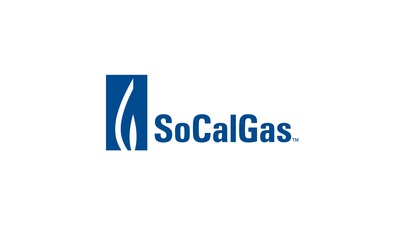Additional 88 Local Restaurants Receive $5,000 Assistance Grants Through Restaurants Care Resilience Fund
- None.
- None.
Insights
Through the lens of economic impact, the injection of capital into independent restaurants via the Restaurants Care Resilience Fund represents a strategic move to bolster a sector that has faced significant hardship. The targeted approach, focusing on small businesses with limited locations and revenue, ensures that the aid reaches those potentially lacking the robust financial cushions of larger chains. The emphasis on women and minority-owned establishments aligns with broader economic objectives to address systemic inequalities within the business community.
The multiplier effect of such grants is notable. By allocating funds towards technology upgrades and employee retention, these businesses can enhance operational efficiency and service quality, potentially translating into increased customer satisfaction and repeat business. Moreover, well-compensated and trained staff can lead to improved service delivery, which is critical in the hospitality industry. The long-term effects could include a more resilient local economy, with job retention and creation as key benefits.
However, it's essential to monitor the efficacy of the grants in achieving their intended outcomes. The risk of misallocation of funds or insufficient impact per dollar spent is a concern that requires ongoing assessment. Overall, this initiative may serve as a model for how targeted financial support can revitalize at-risk sectors of the economy during post-pandemic recovery phases.
From a financial perspective, the allocation of grants to independent restaurants is a strategic investment that can yield significant returns for the local economy. The $5,000 grants may seem modest individually, but collectively, they represent a substantial sum aimed at stimulating business activity. For investors and stakeholders in the region, this could signal an uptick in consumer spending as these restaurants enhance their offerings and potentially expand their customer base.
Importantly, the support from SoCalGas and other utility companies positions these corporations as community-focused, which may positively influence their public image and investor sentiment. The initiative may also indirectly benefit suppliers and other businesses within the restaurants' ecosystems, leading to a ripple effect of economic stimulation. For the stock market, this kind of corporate social responsibility can be a positive indicator of a company's long-term sustainability and ethical practices, potentially attracting ESG-focused investors.
However, it's crucial to consider the scale of the impact relative to the broader market. While the direct effect on stock prices may be limited, the gesture contributes to a positive narrative around corporate-community partnerships, which can have longer-term reputational benefits for the involved companies.
Examining the social implications, this initiative by SoCalGas and the California Restaurant Foundation showcases a commitment to corporate social responsibility that extends beyond mere philanthropy. The grants are a tangible effort to support diversity and inclusion within the business community. By directing funds to women and minority-owned businesses, the program not only provides financial assistance but also sends a strong message about the importance of diversity in entrepreneurship.
This action can inspire consumer confidence and loyalty, as customers increasingly prefer to support businesses that align with their values. In the long run, such programs can contribute to a more diverse and equitable economic landscape. This is particularly significant in California, a state known for its cultural diversity and progressive social policies.
While the immediate financial benefits of the grants are clear, the broader societal impact, including the promotion of diversity and the empowerment of underrepresented business owners, may have far-reaching consequences. These could manifest in the form of a more inclusive business environment and increased innovation stemming from a diverse array of perspectives within the marketplace.
This is the 2nd Round of Restaurant Grants awarded this year with the support of SoCalGas'
Eligibility for grants is limited to independent restaurants with no more than five locations and less than
"As part of our longstanding commitment to the communities we serve, SoCalGas is proud to donate to the California Restaurant Foundation's Restaurants Care Resilience Fund for the third consecutive year," said David Barrett, SoCalGas senior vice president, general counsel, and California Restaurant Foundation board member. "The fund supports independent restaurants, which are integral to our local communities, and the foundation's grants are specifically designed to improve the livelihoods of local restaurant owners and their dedicated staff."
"SoCalGas has been an outstanding partner, providing steadfast and invaluable support for the Restaurants Care Resilience Fund since its inception in 2021. As a result, hundreds of independent restaurant owners across SoCalGas' service area have been able to fortify their businesses for the long haul," said Alycia Harshfield, Executive Director of California Restaurant Foundation. "We are excited to provide more restaurant owners with access to
"The collaborative efforts of SoCalGas and the California Restaurant Foundation are making a meaningful difference in the livelihoods of small business proprietors, their workforce, and the communities these restaurants enrich," said
"I'm thrilled to have one of the restaurants in Placentia chosen for the restaurant grant. Not only did our restaurants suffer greatly during the pandemic, but they also continue to have difficulties in the ever-changing economic environment, and the different choices people are making on how they spend their disposable income. The health and vitality of our small businesses, such as Tlaquepaque, are key to the future of Placentia. I'm grateful that SoCalGas continues to reinvest in our communities in such a tangible way," said Rhonda Shader, City of Placentia Council Member, District 1.
Since its inception, the Resilience Fund has awarded over 1,100 grants to independently owned restaurants across
"For seven years, Cheesewalla has provided a new restaurant style with delicious and reliable experience for our guests. Thanks to this grant from SoCalGas and California Restaurant Foundation, we will expand our business, acquiring new fryers and broilers for our new cocktail bar's food menu," said Kadir Fakir, Co-Owner of Cheesewalla. "We are so grateful that we will be able to grow as a company, bring in more staff, and most importantly, connect with our close-knit
In addition to providing financial support to restaurants through its donations to the foundation, SoCalGas offers programs and services to help business customers select energy-efficient equipment. Restaurant owners can schedule a 'Try Before You Buy' demo with natural gas cooking equipment before purchasing, request a no-cost energy survey to be conducted by a utility expert, and obtain information on rebates and incentives for eligible energy efficient natural gas cooking equipment, water heating, heat recovery products, and energy-efficient upgrade installation.
SoCalGas' support of the California Restaurant Fund is part of the company's ASPIRE 2045 sustainability goals, which include a plan to invest
For more information about the California Restaurant Foundation or their Restaurants Care Resilience Fund, please visit www.restaurantscare.org.
More media assets per region can be found here.
About SoCalGas
Headquartered in
SoCalGas' mission is to build the cleanest, safest and most innovative energy company in America. In support of that mission, SoCalGas is committed to the goal of achieving net-zero greenhouse gas emissions in its operations and delivery of energy by 2045 and to replacing 20 percent of its traditional natural gas supply to core customers with renewable natural gas (RNG) by 2030. Renewable natural gas is made from waste created by dairy farms, landfills, and wastewater treatment plants. SoCalGas is also committed to investing in its gas delivery infrastructure while keeping bills affordable for customers. SoCalGas is a subsidiary of Sempra (NYSE: SRE), an energy infrastructure holding company based in
For more information visit socalgas.com/newsroom or connect with SoCalGas on X (@SoCalGas), Instagram (@SoCalGas) and Facebook.
This press release contains forward-looking statements within the meaning of the Private Securities Litigation Reform Act of 1995. Forward-looking statements are based on assumptions about the future, involve risks and uncertainties, and are not guarantees. Future results may differ materially from those expressed or implied in any forward-looking statement. These forward-looking statements represent our estimates and assumptions only as of the date of this press release. We assume no obligation to update or revise any forward-looking statement as a result of new information, future events or otherwise.
In this press release, forward-looking statements can be identified by words such as "believe," "expect," "intend," "anticipate," "contemplate," "plan," "estimate," "project," "forecast," "should," "could," "would," "will," "confident," "may," "can," "potential," "possible," "proposed," "in process," "construct," "develop," "opportunity," "initiative," "target," "outlook," "optimistic," "poised," "maintain," "continue," "progress," "advance," "goal," "aim," "commit," or similar expressions, or when we discuss our guidance, priorities, strategy, goals, vision, mission, opportunities, projections, intentions or expectations.
Factors, among others, that could cause actual results and events to differ materially from those expressed or implied in any forward-looking statement include: decisions, investigations, inquiries, regulations, denials or revocations of permits, consents, approvals or other authorizations, renewals of franchises, and other actions by the (i) California Public Utilities Commission (CPUC), U.S. Department of Energy,
These risks and uncertainties are further discussed in the reports that the company has filed with the U.S. Securities and Exchange Commission (SEC). These reports are available through the EDGAR system free-of-charge on the SEC's website, www.sec.gov, and on Sempra's website, www.sempra.com. Investors should not rely unduly on any forward-looking statements.
Sempra Infrastructure, Sempra Infrastructure Partners, Sempra Texas, Sempra Texas Utilities, Oncor Electric Delivery Company LLC (Oncor) and Infraestructura Energética Nova, S.A.P.I. de C.V. (IEnova) are not the same companies as the California utilities, San Diego Gas & Electric Company or Southern California Gas Company, and Sempra Infrastructure, Sempra Infrastructure Partners, Sempra Texas, Sempra Mexico, Sempra Texas Utilities, Oncor and IEnova are not regulated by the CPUC.
![]() View original content to download multimedia:https://www.prnewswire.com/news-releases/additional-88-local-restaurants-receive-5-000-assistance-grants-through-restaurants-care-resilience-fund-302018689.html
View original content to download multimedia:https://www.prnewswire.com/news-releases/additional-88-local-restaurants-receive-5-000-assistance-grants-through-restaurants-care-resilience-fund-302018689.html
SOURCE Southern California Gas Company








